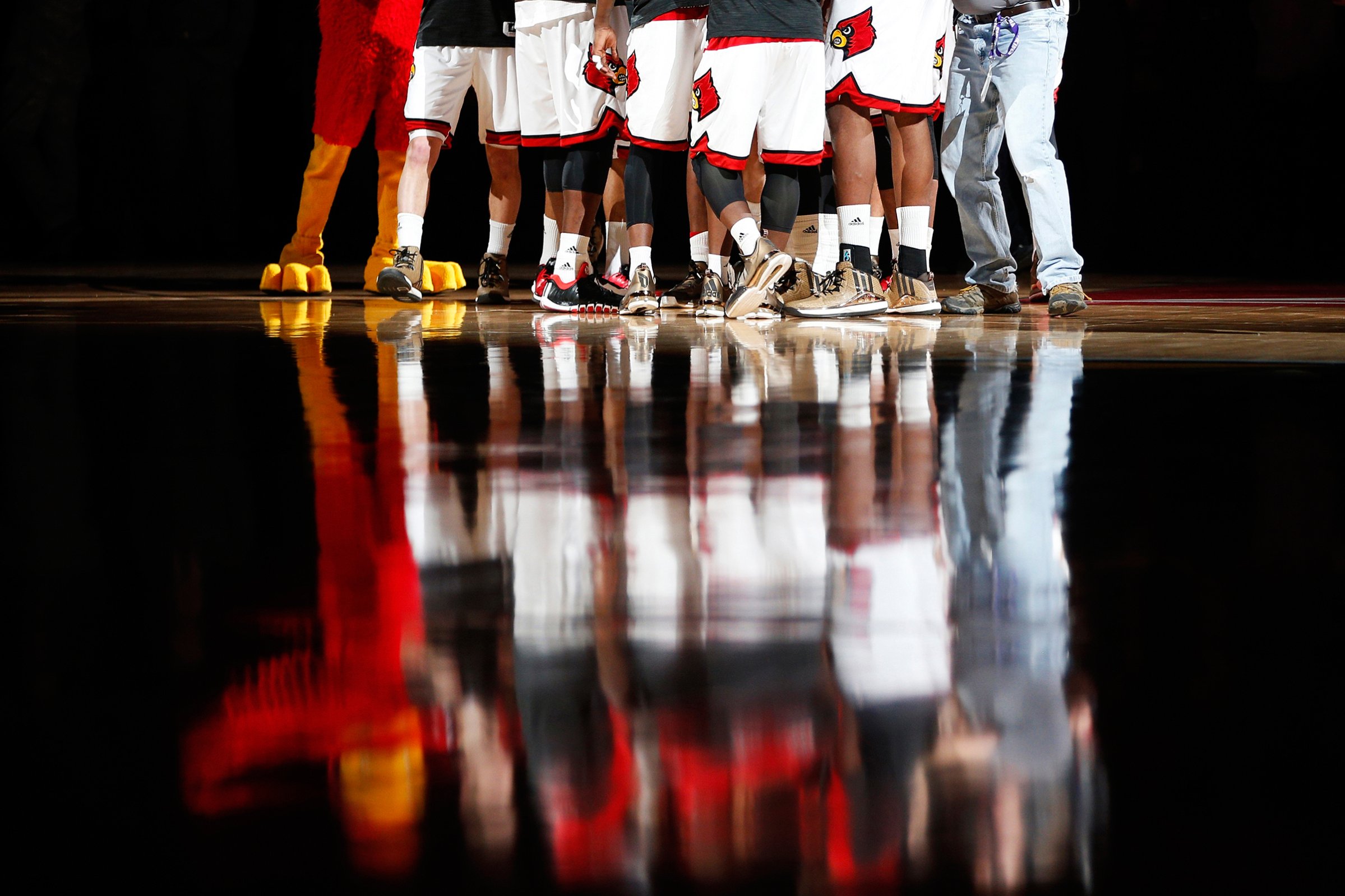
The criminal complaint unveiled in late September contained all sorts of unsavory details about college basketball’s underground economy: five-figure bribes to coaches, six-figure payouts to high school players and their families, and the alleged complicity of employees at some of the nation’s most prominent universities.
The 10 defendants “allegedly exploited the hoop dreams of student-athletes around the country,” said Joon H. Kim, the acting U.S. attorney for the Southern District of New York. The FBI opened a tip line, and officials suggested more bombshells to come.
It was a public service but not only in the ways federal investigators intended. Indeed, the lasting legacy of the probe into the corruption of college hoops may turn out to be a government-backed reminder of the hypocrisy at the heart of big-time college sports.
The NCAA, which governs most intercollegiate sports in the U.S., requires that athletes maintain their amateur status in order to play. That means they can’t accept any compensation beyond an athletic scholarship and a meager cost-of-living stipend, or profit from their likeness in any way.
The NCAA and the colleges where these athletes play, however, are free to cash in. And boy, do they: Under Armour is paying UCLA roughly $18.7 million per year to be its exclusive shoe and apparel sponsor; the College Football Playoff sold its broadcast rights for more than $7 billion over 12 years; while TV rights for March Madness, the men’s basketball tournament that accounts for the bulk of the NCAA’s revenue, fetch more than $700 million annually.
It’s little wonder there was an opening for the kinds of payoffs and kickbacks detailed by the feds. Among the allegations: an Adidas employee and representatives of sports-management and investment-services companies funneled $100,000 to a top high school recruit in exchange for his commitment to attend the University of Louisville and sign with Adidas and work with the companies in question once he turned pro. After the news was made public, Louisville placed head coach Rick Pitino, whose success on the court has lately been overshadowed by negative headlines off of it, on administrative leave. (Pitino denied any knowledge of the accusations.) The complaint also accused Auburn associate head coach Chuck Person, a former NBA player, of accepting a bribe to steer one of his players to a financial adviser as a client. (An attorney for Person declined comment.)
That coaches and others in a position of trust would prey on younger people in their care is a shame. But the current system, which allows major institutions to reap large profits from the unpaid labor of students, should not escape judgment. “I can imagine this alternative universe where paying players is legal and above the table and coaches wouldn’t have had to lie,” says Nathaniel Grow, a professor of business law and ethics at Indiana University’s Kelley School of Business. Even the language used by U.S. attorney Kim shows how easy it is to fall into the NCAA’s linguistic trap. How, exactly, is an athlete receiving $100,000 in exchange for his services being “exploited”? Isn’t “enriched” a more appropriate descriptor?
The consequences of the investigation could ripple far beyond the basketball court. If the tip line gets as much inbound traffic as many observers expect and more players are found to have received payments–in violation of the NCAA’s restrictions on compensating the athletes that fans pay to see–the NCAA will be forced to punish Louisville and perhaps dozens of other top programs. Scholarships will be stripped, denying opportunities to future student-athletes and potentially hurting low-revenue sports that are subsidized by big-time hoops.
Some of the housecleaning to come is necessary. Top-tier college basketball has long been a bit of a cesspool, filled with too slick coaches and hangers-on with their hands out. Still, the game can be a force for good. Many athletes take their studies seriously. They learn to lead and manage their time and benefit from the experience throughout their lives. These athletes deserve to be fairly compensated for their labor, through a system that is legal, clean and transparent. Anything less will ensure that the current criminal investigation won’t be the last.
For more on these stories, visit time.com/ideas
More Must-Reads from TIME
- Cybersecurity Experts Are Sounding the Alarm on DOGE
- Meet the 2025 Women of the Year
- The Harsh Truth About Disability Inclusion
- Why Do More Young Adults Have Cancer?
- Colman Domingo Leads With Radical Love
- How to Get Better at Doing Things Alone
- Michelle Zauner Stares Down the Darkness
Write to Sean Gregory at sean.gregory@time.com